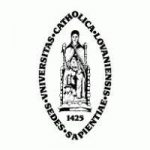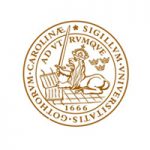项目介绍
We advertise 1 PhD position to join the newly-founded team of Prof. Eva Laplace at the Institute of Astronomy, KU Leuven, Belgium. Selected candidates will collaborate closely with other teams at KU Leuven, with a broad massive-star research community, and the newly-formed Leuven Gravity Institute. We actively support equal opportunities and diversity and highly encourage underrepresented groups to apply.
The Host Institute
The Institute of Astronomy (IoA) of Leuven University in Belgium is a young and vibrant research group of some 90 scientists, engineers, and administrative staff (fys.kuleuven.be/ster), including 7 full-time and 3 part-time professors. The institute is an expertise center in stellar physics and is active in several international consortia and collaborations. Crucial for this project; all members of IoA have access to parallel and supercomputing facilities. The IoA is further responsible for the organization of the 2-year Master in Astronomy & Astrophysics of the Faculty of Science and operates the 1.2m Mercator telescope at Roque de los Muchachos, La Palma Observatory, Canary Islands.
Project
The Project When stars end their lives, their hearts continue to exist in a different, exotic form, known as a compact remnant: black holes, neutron stars, or white dwarfs. Understanding the exact origin of these objects is one of the most pressing scientific questions in astrophysics at this time. With the discovery of gravitational waves (GWs), we now have a new way to study these extreme objects, but also several new puzzles to solve, such as the origin of the large number of high-mass binary black hole mergers. To make breakthroughs in understanding the properties of stellar remnants and the GWs they generate, it is crucial to study the binary stellar hearts that form them.
In this PhD project you will use numerical simulations to constrain the physics of stellar hearts in binary systems. In particular, you will research how the structures of binary stellar hearts change as a function of metallicity, and investigate whether their final properties can explain the origin of recently-discovered high-mass black holes. Based on these results, you will predict the properties of GW sources that will be observable with next-generation detectors such as the Einstein Telescope. With this project, you will become an expert in stellar and gravitational-wave astrophysics and be part of a large community working on the properties of massive stars.
Profile
RequirementsPhD applicants should hold a MSc degree in astrophysics, physics, or mathematics, or else have obtained an equivalent diploma. Proficiency in English is required. Interests and knowledge in stellar astrophysics, explosive transients, gravitational-wave astrophysics, and/or computational (astro)physics are strong assets. Experience with the MESA stellar evolution code, stellar explosion codes, and/or population synthesis codes are assets but not requirements. The ideal applicant is committed and curious, has strong problem-solving skills, can integrate and work in a research team, and is eager to work at the forefront of scientific research and to develop their physical intuition.
Offer
The ContractThe selected PhD candidates will be offered a 2-year contract, once renewable with 2 more years after a positive evaluation. The salary will be commensurate to the standard scale for PhD candidates in Belgium. The preferred starting date will be April 1st, 2025, but can be negotiated towards later dates in 2025.The successful PhD applicant will register at the Arenberg Doctoral School of KU Leuven and follow a doctoral program including personal training in management, science communication, and teaching. As part of the doctoral requirements, the candidate will teach 4 hours per week in one of the Bachelor (in Dutch) or Master (in English) programs as a teaching assistant. PhD candidates at IoA are also expected to perform at least two Mercator observing runs of 10 nights during their PhD for the pooled IoA long-term monitoring programs.
Compensation and BenefitsThe contract includes social and medical insurance as well as pension rights. Working hours are flexible and the opportunity for partial teleworking is offered. Refunds of commuting expenses when using public transport or bicycle are included. The KU Leuven offers access to childcare.
Interested?
How to apply?
The application should be received by December 15th, 2024.
The application package should include:(i) a curriculum vitae, with a publication list if relevant. On the last page, it should include the email contacts of two reference persons;(ii) a statement of interest (max. 1 page);(iii) a summary of the research experience (max. 2 pages, excluding references);(iv) a transcript of all university courses taken and grades obtained to date.
The shortlisted applicants will be invited for an interview between the end of January and mid-February.
Further information on the positions and the project may be obtained by contacting Eva Laplace by email (drevalaplace@gmail.com).You can apply for this job no later than December 15, 2024 via the online application tool
KU Leuven strives for an inclusive, respectful and socially safe environment. We embrace diversity among individuals and groups as an asset. Open dialogue and differences in perspective are essential for an ambitious research and educational environment. In our commitment to equal opportunity, we recognize the consequences of historical inequalities. We do not accept any form of discrimination based on, but not limited to, gender identity and expression, sexual orientation, age, ethnic or national background, skin colour, religious and philosophical diversity, neurodivergence, employment disability, health, or socioeconomic status. For questions about accessibility or support offered, we are happy to assist you at this email address.
Heb je een vraag over de online sollicitatieprocedure? Raadpleeg onze veelgestelde vragen of stuur een e-mail naar solliciteren@kuleuven.be
联系方式
电话: +32 16 324010相关项目推荐
KD博士实时收录全球顶尖院校的博士项目,总有一个项目等着你!




